- Home
- Keith Douglass
Specter sts-2 Page 4
Specter sts-2 Read online
Page 4
"You use, ne?" Gypsy said as Murdock carefully clicked the briefcase shut. "You send jets, kill many Christians, kill many Chetnik bastards, da?"
Murdock looked back at the monastery and at the bodies littering the ground. "Kill many Christians," he said, his voice hard. "Da."
"Hvala. Vrlo ste lyubazni."
0342 hours Checkpoint Orandzasta Southern Bosnia
The Mi-8 transport helicopter descended toward the clearing, a broad stretch of open and relatively level ground on the otherwise thickly forested Mountainside that had been the site of a logging operation several years earlier. Several vehicles had been lined up to either side of the roadway, their headlights illuminating the touchdown point.
Brigadni Djeneral Vuk Mihajlovic remained in his seat as the helicopter touched down, a crew member slid open the cabin door on the right side, and his aides and bodyguards clambered out into the night. He didn't like flying, especially at night, and especially as parts shortages and wear and tear claimed more and more of the aging aircraft purchased years ago from the then-Soviet Union. Still, it was the only way a brigade general could maintain personal control of his command, and this time it sounded as though he'd happened upon a special piece of luck.
JNA helicopters in Bosnia tended to fly only short hops nowadays, sticking to hair-raising, low-level flights through mountain passes and valleys just in case NATO or the Americans decided to enforce their ludicrous and arbitrary no-fly-zone decrees. Mihajlovic had been en route from Kotor to the headquarters of his Third Regiment in the hills outside Dubrovnik when the Mi-8's pilot had picked up an urgent radio call from Checkpoint Orandzasta. Normally, he would have ordered the pilot to ignore the signal, but the caller had used a code phrase that indicated he was a JNA advisor with the militias. He'd then reported an ambush on Bosnian-Serb forces that he claimed had been launched by American commandos.
That seemed unlikely. Almost certainly, what the caller had blundered into was a raid by one or another of the anti-Serb militias, probably Croats with the paramilitary HOS, the so-called Croatian Defense Army. There was almost nothing left of the Bosnian Muslim forces, not enough to have caused the slaughter the JNA advisor was screaming about over the radio.
In any case, since Mihajlovic happened to be in the area, it wouldn't hurt to stop and find out what was going on. Mihajlovic was a hands-on type of commander, Russian-trained, popular with his troops. It wouldn't hurt to check on the man's story, especially if the Croats were up to something unpleasant. A commando raid against the naval base at Kotor was a definite possibility, as were guerrilla-style raids against the Serbian supply lines through the mountains above Dubrovnik.
Careful not to give the appearance of unseemly haste, he unbuckled from his jump seat and stepped out of the helicopter. With head bent to avoid the still-turning rotors, he walked toward the building nearby, a decrepit-looking shack that had been the office for the lumbering company here and that now served as Checkpoint Orange.
He was met outside the building's front door by two men, both in dirty mismatches of Soviet-style and Yugoslav army uniforms. "Dobro yutro," he greeted them. "What seems to be the trouble?"
"Good morning, Brigade General," the older of the two men said. "I am Captain Balaban, in command of this post. I-"
"Sir! Senior Sergeant Jankovic," the other man said, abruptly interrupting the militia officer. "I am a JNA advisor with these people."
"You are the one who reported an attack," Mihajlovic said, ignoring Balaban. The militiamen tended to be disorganized and more often than not exaggerated the situation, whatever it was. But the JNA sergeant looked reliable enough.
"Yes, sir. American commandos wiped out a section of Serbian Volunteer Guards not five kilometers from here."
"And how is it you escaped, Sergeant?"
"The chances of war, General. That… and I was able to react swiftly when the attack started." He glanced briefly at Balaban. "The militia handled themselves as well as could be expected under the circumstances. The attackers were almost certainly American commandos. They opened fire suddenly, without warning, when most of our men did not even have their weapons."
"Um. What makes you think the attackers were Americans?"
"Their equipment, my General." He went on to describe the attack, and what he had seen of the two commandos, in precise detail. He did not say — and Mihajlovic did not ask — just what the Bosnian militiamen had been doing at the ruined monastery in the first place, other than to mention that the unit had been standing down, with minimal security measures in place. In all probability they'd been engaged in what the JNA high command euphemistically called "pacification," breaking the stubborn Bosnian-Muslim will to resist, and the Seth general did not care to know too many of the details.
Sometimes, terrible things had to be done to further a cause, to achieve a necessary goal.
When Jankovic had completed his report, Mihajlovic was more than half certain that the sergeant had, indeed, seen Americans… or at least a contingent of NATO commandos. The description of their uniforms — black coveralls, combat harnesses, low-light goggles, silenced automatic weapons — sounded very much like the British SAS, though there were no reports that any Special Air Service detachments were stationed anywhere near the Adriatic just now. German GSG-9 was another possibility; the Germans had been taking a keen interest in military developments in the Balkans, though they were still unwilling to operate outside of the guidelines set by NATO. Americans? Very possible. Delta Force, Army Rangers…
But what could Americans be after at a ruined Bosnian monastery? Jankovic had mentioned a civilian who'd driven up moments before the ambush. That could be significant. A curfew was in effect throughout Bosnia and coastal Croatia; a civilian out in the middle of the night, alone at a place that should have been deserted, was extremely suspicious… and supported Jankovic's contention that the attackers were foreign commandos. "You did not see what became of the civilian," he said bluntly.
"No, my General. I know only that he was there in the custody of two of my men when the attack began."
"And the attack took place-" He consulted his watch. "-just over an hour ago?"
"Yes, sir. I remember looking at my watch when the civilian drove up. It was two-thirty-five."
"Then these invaders, whoever they are, are still in the area. Come with me, Sergeant."
"Yes, sir. Where are we going?"
"To find these commandos, of course. I would like to know what they find so interesting about a deserted, tumbled-down church."
0345 hours St. Anastasias Monastery Southern Bosnia
"L-T?"
"Yeah, Razor."
"We got the brass policed, L-T," Roselli said. He'd found the lieutenant standing next to the highway, staring up the mountain, a distracted look on his face. "We're clean."
"Okay. Get your gear together and let's move. It's time to get the hell out of Dodge!"
Roselli, frankly, wasn't sure what to make of the L-T. He'd thought he'd known the man pretty well; eight months of close, hard training and two combat deployments — one in the Indian Ocean, the other just a few days later at the Iranian naval port at Bandar Abbas — were enough to make brothers out of any two men, whatever the differences in their backgrounds or families. Now, though, he wasn't so sure.
It was, he knew, the way Murdock had gunned down that Serb militiaman, right at the end of the firefight. Oh, the fact of the killing alone wasn't the problem. SEALS, like covert forces tasked with counterinsurgency/counterterrorism worldwide, frequently had to get into tight places and out again without being seen and without jeopardizing the op's success by dragging along prisoners. The written orders for this mission had directed Blue Squad to handle prisoners "according to SOP," a bit of verbal misdirection that meant they would not be taking prisoners.
But Lieutenant Blake Murdock was not just another SEAL platoon leader, whatever he might tell the guys. He was the son of Congressman Charles Fitzhugh Murdock of Virginia, and
Roselli knew damned well that there was a lot riding on that relationship. According to the scuttlebutt, the elder Murdock hadn't wanted his son to go into Navy Special Warfare in the first place, and had done damn near all he could to get him out. The L-T was a stubborn son of a bitch, though, and the story was that he'd joined the teams in defiance of his dad's wishes.
But man, if the story got out that Murdock personally had blown away a bad guy after he'd tried to surrender, the political fallout would be inconceivable. At the very least it would end the younger Murdock's career… and maybe the elder Murdock's career as well. There were plenty in Congress who felt that SEALs and elite units like them were anachronisms, necessary, possibly, during the Cold War, but embarrassing and even dangerous in this enlightened day of world peace and military cutbacks.
Besides, the L-T just wasn't that cold. Oh, Murdock could be hard when he had to be; he ran a tight platoon and didn't let the guys slack off for a minute. But he was also less intense than a lot of SEALS, and he didn't come across as a stone killer. He'd been to Annapolis — an honest-to-God ring-knocker — and he looked more like a fighter jock or an XO aboard some supply ship or, hell, like a lawyer than he did a SEAL. Athletic — lean and wiry rather than muscular — and clean-cut, clear-eyed, nonsmoker, nondrinker, kind of on the quiet side. And sometimes, like now, he got real quiet… and then you never knew what was going to go down.
He'd talked to that spook local for quite a while, then tried to use him as a translator with the women, none of whom spoke any English. That hadn't worked out very well, because the women were still in shock and Gypsy had been real anxious to be on his way. Before he'd let the guy go, though, he'd made him promise to take the girls along, get them out of the area. Gypsy hadn't wanted to do that, but Murdock had told him that the CIA would find out if he didn't take them someplace safe… and then the SEALs would come for him.
Then he'd made the guy wait even longer while he had some of the guys take shirts and coats from some of the Serb bodies, ones that weren't too badly bloodied, and give them to the women who'd had their clothing cut up.
That was scarcely the manner of a cold-blooded killer, or even of a SEAL officer who thought of nothing but the mission.
For the next half hour, Murdock had had the SEALs picking up all the spent brass from the firefight and bagging it. The 9mm rounds fired by HKs were common throughout Europe, but the .223 rounds fired by the M-16s carried by Mac and Magic were unmistakably NATO. Perhaps he should have insisted that everyone carry local weapons, like AKs, but damn it, there wasn't supposed to have been a firefight in the first place. The weapons were insurance against the unthinkable… to be used only as a last resort.
Now their concern was exfiltration, getting out with the minimum fuss possible. He'd ordered Doc and Higgins to gather up the bodies and dump them in the two trucks, after which Mac had siphoned off a couple of liters of gasoline and doused both vehicles and their contents. There was no way to hide what had happened here tonight, but Murdock clearly hoped to leave as few traces behind as possible.
"Everything's set," MacKenzie said, as Roselli shrugged into his assault vest. "The squad's ready to move out."
"Okay. Touch off the trucks and let's go."
MacKenzie stayed behind long enough to toss a couple of thermite grenades into the backs of the trucks. The SEALs were already well into the woods when the incendiaries went off, and the night-black forest behind them lit up brighter than day.
They were moving single file down the slope moments later when Murdock stopped, letting the rest of the men file past him. Roselli had the next-to-the-last position, just ahead of Mac. "L-T?" he asked as he came up to where Murdock was standing. "You okay?"
"I keep thinking I hear something," Murdock said. He looked worried.
Roselli stopped and listened too. He could hear the roar of the fire, but far off now. There was nothing else…
No, there was something. Roselli heard it too, a kind of dull, clattering noise. "Chopper," Murdock said. "Damn that was fast!"
"Maybe they're just passing by."
"Maybe. And maybe they're stopping to have a look at our handiwork." Murdock reached up and touched his tactical radio's transmit switch. "Blue Squad! The dogs are out. Let's take it double-time!"
Roselli could hear the helicopter clearly now, a pulsing whop-whop-whop sounding through the forest from higher up on the hill.
Murdock hadn't been kidding. The hunt was on, and the SEAL squad was the prey.
4
0400 hours St. Anastasias Monastery Southern Bosnia
"My General," the aide said. "This does not look like the work of Turk rabble."
Mihajlovic nodded, watching the flames in front of the monastery dwindle. "I am beginning to agree. Sergeant."
"Da, moy Djeneral!"
"You say you were just there, by the southeast corner, when the attack occurred?"
"Yes, sir."
"And the commandos must have been there… hidden in the brush at the tree line."
"Yes, sir."
There was little left of two military trucks save for the charred and twisted frames. There were no bodies lying around as Jankovic had claimed, but there was plenty of evidence of a massacre — splatters of blood on the ground and on the front wall of the monastery, bullet scars on the stone.
"You are right, Major," Mihajlovic said thoughtfully to his aide. "Someone has gone to considerable trouble to clean up after himself." He'd already had the men with him using flashlights to scour the area for empty brass casings that would have identified the weapons the intruders had used, but so far they'd found nothing, no shells, no discarded equipment or wrappers or food tins, nothing that would have told Mihajlovic who had been here. "Muslim militia would not have been so thorough. Even Croats would simply have ambushed our people, then melted away into the forest. Besides, I suspect they would have left some bodies about as a kind of calling card, ne?"
The bodies of the militia troopers and their weapons, he thought, had probably been dumped in the trucks before the fires had been set. The attackers could be anywhere now, hidden by the night and the forest.
But they would not have gotten far. The fire was still burning; it couldn't have been set more than thirty minutes or so ago… and maybe less. That meant that the invaders were still close, within two or three kilometers at the most.
"Major, if the intruders were, indeed, Americans or other members of NATO," Mihajlovic continued after a thoughtful moment, "then they are on their way to an extraction point. It is up to us to guess where that extraction point might be."
"Extraction, my General… by helicopter?"
"Possible… possible. We shall alert the Air Force, have them watch for incursions in the area by low-flying, unidentified aircraft."
Helicopter extraction did seem the most likely way out for the intruders… but Mihajlovic had been giving the situation some hard thought during the past few minutes, and he was not convinced of that scenario. Despite their bluster, NATO had not been enforcing their no-fly zones lately, yet their AWACs aircraft must be tracking the Yugoslav aircraft that were being employed against Dubrovnik. It didn't make sense to risk a helicopter extraction in heavily wooded, mountainous terrain, in a region where Yugoslav interceptors were active.
So… would extraction be more likely by air… or by sea? American Special Warfare groups commonly used both means of exfiltration. The Americans were good at undersea incursions, made from submarines… their Special Forces, their SEALs…
SEALS. Their Navy commandos. With the fighting at Dubrovnik, even with fighter cover the Americans would have been foolish to risk their special forces aircraft to SAM and antiaircraft fire. And St. Anastasias was only six kilometers from the sea.
"Both of you, come with me." Paced by Jankovic and the aide, Mihajlovic returned to the helicopter, which had landed on the main road just outside the monastery turnoff. In the back of the main cabin, he selected a map case from a storage rack and pu
lled out a military topo map covering the region between Kotor and Dubrovnik. Using a pocket flashlight, he studied the terrain carefully for a moment. "Sergeant Jankovic?"
"Da, moy Djeneral!"
"How would you like another chance against these mysterious commandos?"
Jankovic hesitated, and Mihajlovic could almost hear the wheels turning as the man considered his reply. He couldn't be eager to face those black attackers again.
"I would welcome the opportunity, my General. Of course."
Mihajlovic pointed to a spot on the map. "They almost certainly came ashore somewhere about here… east of Dubrovnik. I suspect that they have hidden diving gear somewhere along the coast. All we need to do is put down a force along M2." He dragged his fingertip along the coastal highway on the map. "Patrol from here to here and we will have our frogmen trapped, high and dry like a beached fish."
"Do we have troops enough available for such an operation?" the aide wondered. "That's a good five or six kilometers of highway."
"We can bring JNA regulars from the front lines at Dubrovnik, Major. I will give the necessary commands at once. Sergeant, you may draw a weapon and join my escort. I will be heading this operation personally."
"Yes, sir!"
The timing, Mihajlovic thought, would be tight… but he was pretty sure they could pull it off. More than revenge was riding here. If these frogman commandos were Americans, he wanted to take one or more of them prisoner. With solid evidence of covert American military action on Yugoslav soil, Belgrade might well be able to break the coalition of European and UN forces arrayed against Serbia in this damned, festering civil war. It would mean disgrace for the Americans, a propaganda victory for Greater Serbia, a promotion and an opening of political goals for himself.
In fact, it would tie in perfectly with Operation Dvorak, which had many of the same goals. A victory here would nicely complement his operation in Macedonia — a complex plot that had been in preparation for months now and was due to reach a climax in only a few more days.

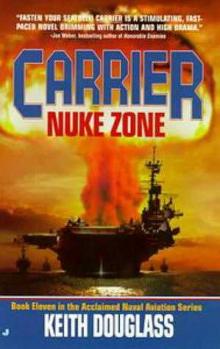 Nuke Zone c-11
Nuke Zone c-11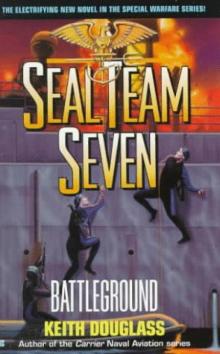 Seal Team Seven 6 - Battleground
Seal Team Seven 6 - Battleground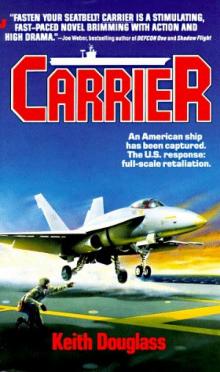 Carrier c-1
Carrier c-1 Island Warriors c-18
Island Warriors c-18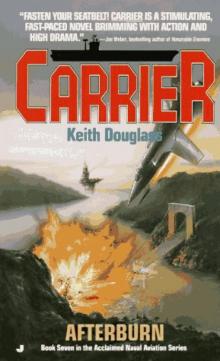 Afterburn c-7
Afterburn c-7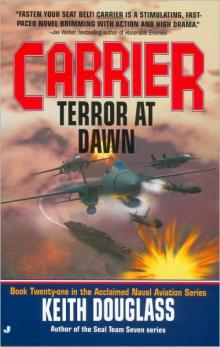 Terror At Dawn c-21
Terror At Dawn c-21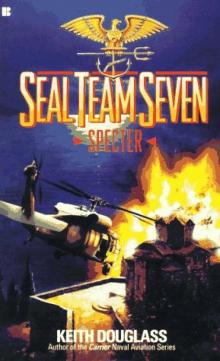 Specter sts-2
Specter sts-2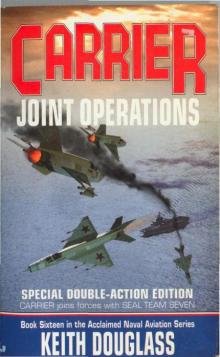 Joint Operations c-16
Joint Operations c-16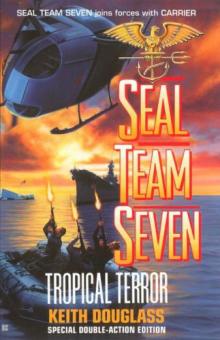 Tropical Terror sts-12
Tropical Terror sts-12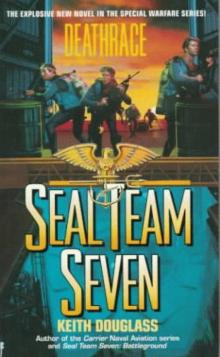 Seal Team Seven 7 - Deathrace
Seal Team Seven 7 - Deathrace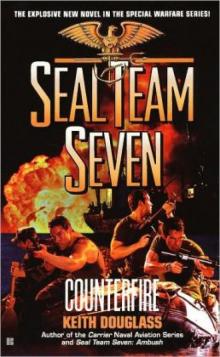 Counterfire sts-16
Counterfire sts-16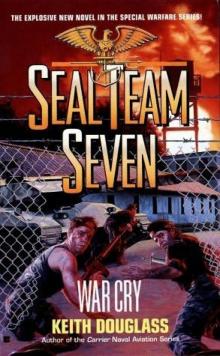 War Cry sts-9
War Cry sts-9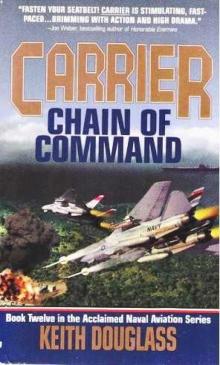 Chain of Command c-12
Chain of Command c-12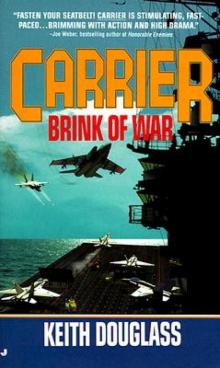 Brink of War c-13
Brink of War c-13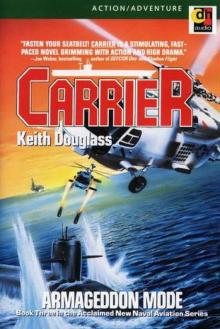 Armageddon Mode c-3
Armageddon Mode c-3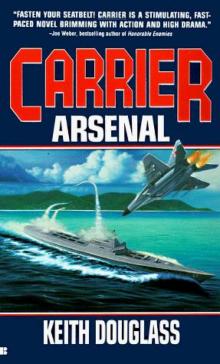 Arsenal c-10
Arsenal c-10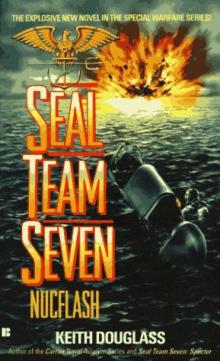 Nucflash sts-3
Nucflash sts-3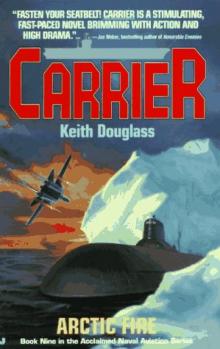 Arctic Fire c-9
Arctic Fire c-9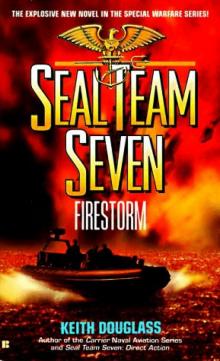 Firestorm sts-5
Firestorm sts-5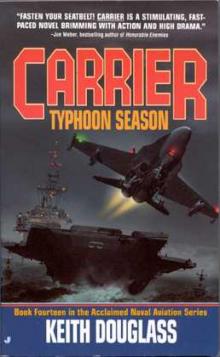 Typhoon Season c-14
Typhoon Season c-14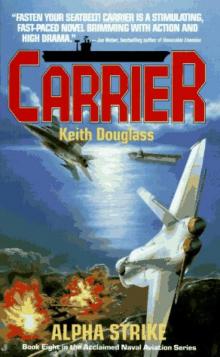 Alpha Strike c-8
Alpha Strike c-8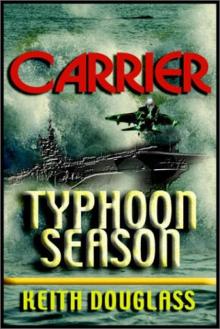 Carrier 14 - TYPHOON SEASON
Carrier 14 - TYPHOON SEASON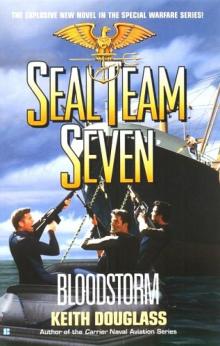 Bloodstorm sts-13
Bloodstorm sts-13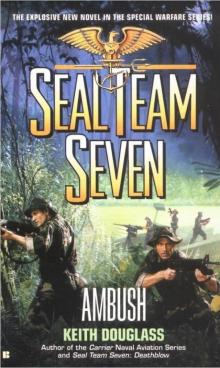 Ambush sts-15
Ambush sts-15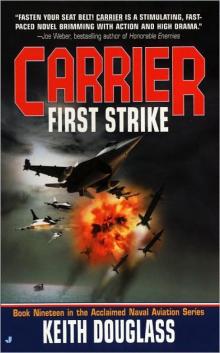 First Strike c-19
First Strike c-19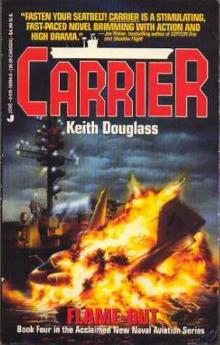 Flame Out c-4
Flame Out c-4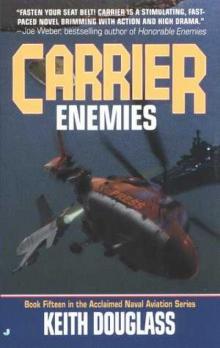 Enemies c-15
Enemies c-15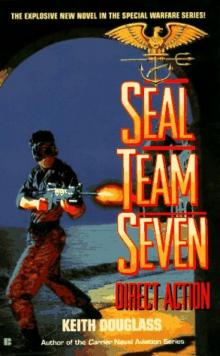 Seal Team Seven 04 - Direct Action
Seal Team Seven 04 - Direct Action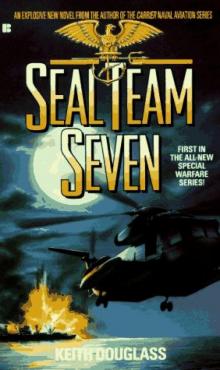 Seal Team Seven 01 - Seal Team Seven
Seal Team Seven 01 - Seal Team Seven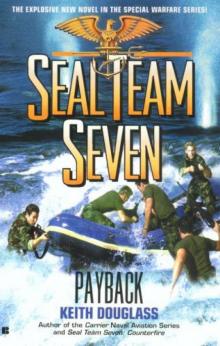 Payback sts-17
Payback sts-17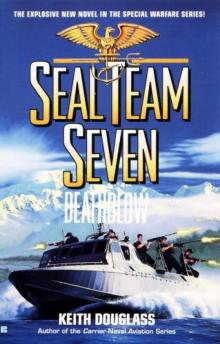 Death Blow sts-14
Death Blow sts-14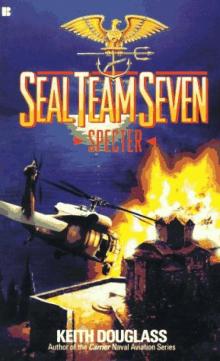 Seal Team Seven 02 - Spector
Seal Team Seven 02 - Spector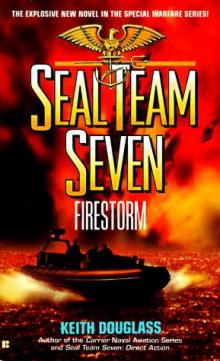 Seal Team Seven 5 - Firestorm
Seal Team Seven 5 - Firestorm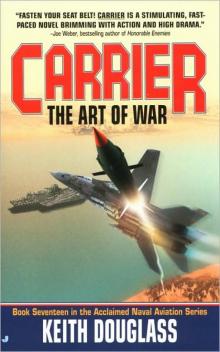 The Art of War c-17
The Art of War c-17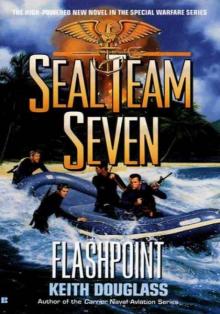 Flashpoint sts-11
Flashpoint sts-11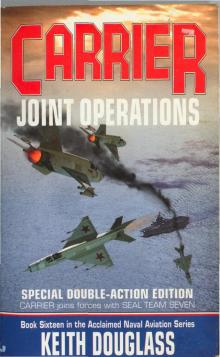 Carrier - Joint Operation Book 16
Carrier - Joint Operation Book 16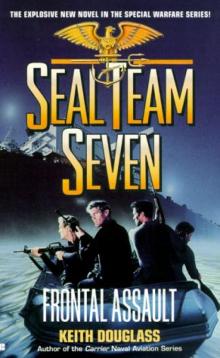 Frontal Assault sts-10
Frontal Assault sts-10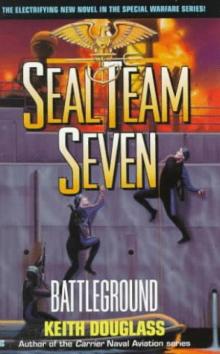 Battleground sts-6
Battleground sts-6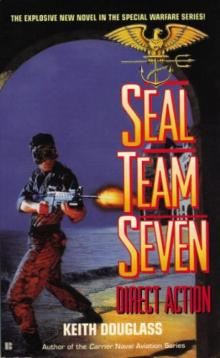 Direct Action sts-4
Direct Action sts-4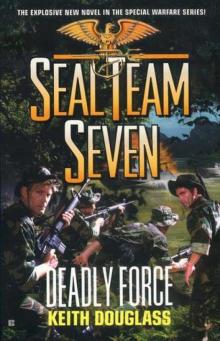 Deadly Force sts-18
Deadly Force sts-18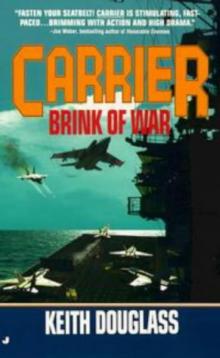 Carrier 13 - Brink of War
Carrier 13 - Brink of War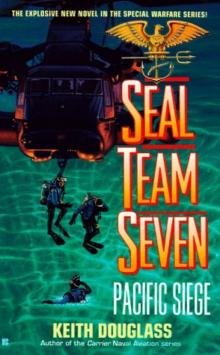 Pacific Siege sts-8
Pacific Siege sts-8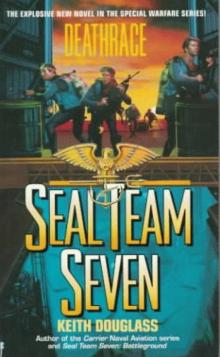 Deathrace sts-7
Deathrace sts-7